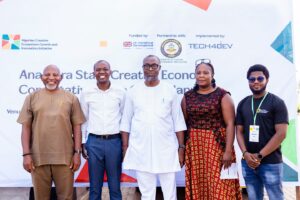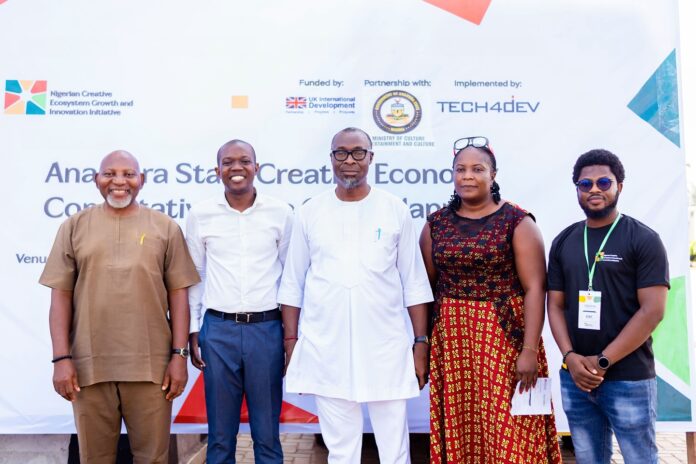The Technology for Social Change and Development Initiative (Tech4Dev) has partnered with the UK-Nigeria Tech Hub and the Lagos State Ministry of Tourism, Arts, and Culture to strengthen Nigeria’s creative economy. Over a two-day event, these organizations conducted a value chain mapping exercise aimed at identifying and addressing challenges within Lagos State’s creative sector.

Lagos, often celebrated as Africa’s creative hub, is known for its vibrant music scene, the dynamic storytelling of Nollywood, and a wide range of other creative expressions. However, despite the city’s creative vibrancy, there is a need for stronger government support to attract more investment into the sector.
During the event, over 70 stakeholders, including private sector representatives, value chain actors, and government officials, discussed ways to improve the creative industry’s growth. A major focus was on the need for government efforts to enhance the ease of doing business by improving infrastructure, developing talent, and establishing clear policies.
According to a statement from the event, Nigeria’s creative industry is diverse, encompassing Nollywood, music, publishing, fashion, hospitality, tourism, and other digitally enabled sub-sectors. Despite the estimated 4.2 million jobs the sector has created across media, entertainment, beauty, lifestyle, visual arts, tourism, and hospitality, it has not yet reached its full potential. Experts believe that the sector could contribute up to $100 billion annually and create an additional 2.7 million jobs by 2030, with growth expected to continue at a rate of 5% per year.
The active participation of the Lagos State Ministry of Tourism, Arts, and Culture in this value chain mapping exercise demonstrates the government’s commitment to fostering a thriving creative sector. Oyinkan Akintola-Bello, Country Director of the UK-Nigeria Tech Hub, emphasized the importance of collaboration between the government and private sector to grow Nigeria’s creative economy.
“It was refreshing to hear about some of the government’s interventions in the creative ecosystem. I envision a collaborative approach where the government and private sector work together to cultivate Nigeria’s creative economy. A crucial next step is gathering comprehensive data, particularly for the creative economy map, to empower informed decision-making on investments, skill development, and even identifying historical filming locations,” she said.
Michael John, Country Manager at Tech4Dev, described the value chain mapping exercise as a “game-changer.” He stated that the event provided a clear understanding of the creative sector and the government’s vision and direction. “Now, it’s time to integrate our findings into policy frameworks, create a detailed map of the creative economy, and focus on developing soft infrastructure to support creativity,” he added.
Immanuel Umukoro, Senior Research and Policy Manager, highlighted the lack of a clear policy framework as a significant obstacle to attracting investment in the creative sector. “We need synergy across MDAs (Ministries, Departments, and Agencies) and a policy that addresses the creative sector as a whole. By creating an illustrative map and focusing on soft infrastructure, we can encourage more investors to enter the creative space,” he said.
The event’s discussions emphasized the need for strategic government support, improved infrastructure, and a collaborative approach to unlock the full potential of Nigeria’s creative economy. Moving forward, stakeholders are focused on developing a comprehensive strategy to enhance the sector’s growth and ensure it reaches its full potential.




